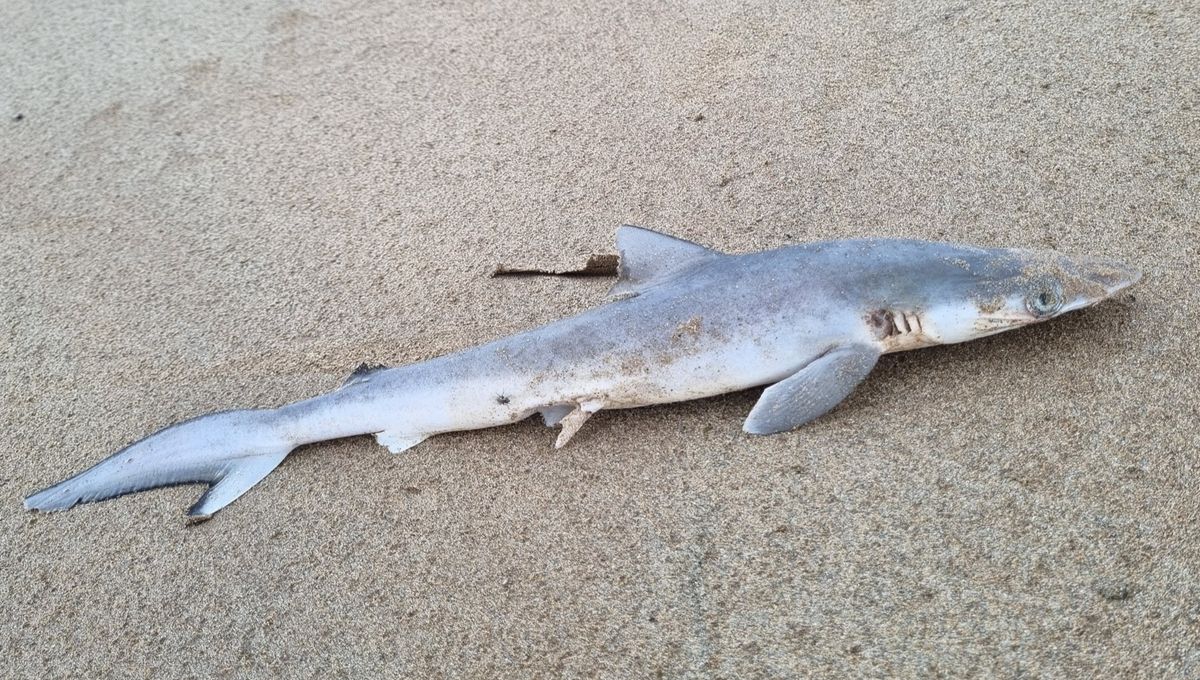
In what sounds more like the beginnings of a low budget creature feature than a real-life event, a team of scientists has discovered traces of cocaine in sharpnose sharks living in the coastal waters of Brazil.
While we often think of microplastics and oil when someone mentions water pollution, cocaine has become of growing concern as an environmental contaminant.
According to the team behind the discovery, that’s down to a combination of the growing use of cocaine – particularly in Brazil – and inadequate sewage treatment, runoff from cocaine production, and packs of the drug left drifting in the water, leading to it winding up in the ocean, where there’s a worry it’ll affect wildlife.
That’s where sharks come in – not only do they play an important role in underwater ecosystems, but they can often be sentinels for environmental pollution, acting as the first warning sign of something being wrong.
To determine if cocaine was ending up in sharks, from September 2021 to August 2023, the team analyzed 13 Brazilian sharpnose sharks (Rhizoprionodon lalandii) captured by fishers off the coast of the southeastern state of Rio De Janeiro. This particular species was chosen because they spend their entire lives in coastal habitats and so are likely to have been exposed to pollution coming from humans.
Each shark had its weight and length determined, before being dissected and samples of its muscle and liver were taken for testing.
The results of those tests revealed that every single sample from the sharks tested positive for cocaine, with 92 percent of muscle samples and 23 percent of liver samples also testing positive for one of the drug’s main metabolites, benzoylecgonine. This marks the first evidence of cocaine being identified in free-ranging sharks.
What’s not clear from the study is whether or not cocaine exposure has had any effect on the sharks, although research into its consequences in other fish, such as eels and zebrafish, found differences in important proteins, changes to skin, and disruption of hormone function.
To determine the possible effects, the researchers call for more testing. “[W]e recommend the expansion of environmental monitoring studies concerning drugs of abuse on the Brazilian coast, as well as detailed investigation of their effects on environmental health and associated risks,” they write.
Cocaine hanging around in a shark’s body may not be great news for humans either.
“Although no maximum permissible concentrations for COC or BE have been established in foodstuffs, these findings are indicative of potential human health risks, as sharks are highly consumed in the state of Rio de Janeiro, in fact, throughout the entire Brazilian territory and indeed, worldwide,” the authors state.
It’s hoped that further research will provide a greater understanding of the potential impacts of both sharks and humans, although the team concludes that action needs to be taken sooner rather than later:
“Ultimately, proactive measures are imperative to mitigate the ecological and public health risks associated with COC contamination in marine environments and ensure the health and balance of coastal ecosystems.”
The study is published in Science of the Total Environment.
Source Link: “Cocaine Sharks” Found Off The Coast Of Brazil